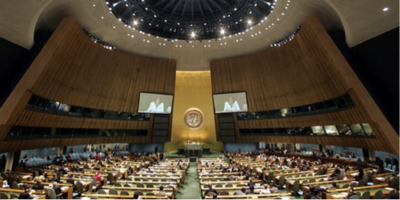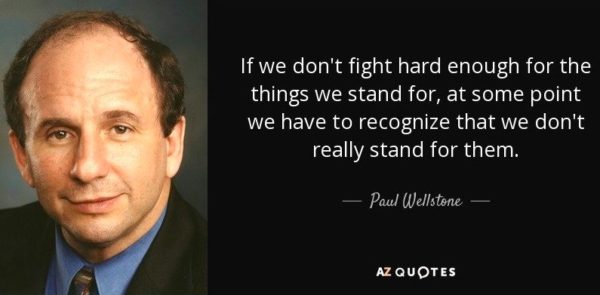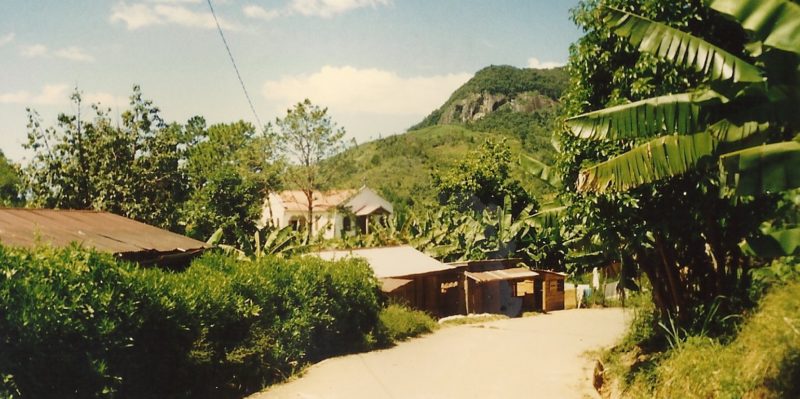Welcome to Trailhead Perspectives and the first entry into the Trailhead Blog and Discussion Center. The word Trailhead is a metaphor. It’s the beginning of a journey, a place to shore up provisions, a place to re-affirm our individual roles on the expedition, and a place where we can look over the map to make sure we have a shared vision of where we want to go. Trailhead Perspectives represents a way of looking at the trailhead of sustainable development from different perspectives from around the world.
I will be attending the first Intersessional meeting of the United Nations Conference on Sustainable Development in a couple of days. This meeting is one of several planning meetings that will take place of the course of the next year in preparations for conference which will be held in Rio de Janeiro, Brazil in 2012. It will be the twentieth anniversary of the first Earth Summit in Rio in 1992. One of the objectives of this upcoming conference is to secure renewed political commitments for sustainable development. On its face, this seems possible. However, if we take a closer look at what a commitment requires the challenges become greater. No matter what is eventually agreed upon in Rio, the implementation of those strategies will require the commitment not only from government leaders, but also from their constituents.
The UN Conference on Sustainable Development, known as Rio+20 or the Earth Summit, is not only about governments. It’s about us, all of us as a collective group of people seven billion strong sharing one planet. The United Nations and its member governments are merely tools that we use to help our society function in a way that helps us meet our objectives. Government and intergovernmental entities are there to make of what we collectively desire from them.
The solutions for achieving sustainable development require actions that go beyond establishing price control measures, transfers of money and writing new laws and rearranging the relationships between bureaucracies. A comprehensive solution also requires changed behavior. The biggest challenge therefore is making a commitment is commit to finding ways to bring the message of sustainable development to the governments’ constituents. However, behavior can’t be changed by lecturing to people or scaring people into action. Behavior comes from how we see ourselves. In the case of sustainable development, it comes from how we see ourselves in relation to the rest of the world’s population. This is played out in two ways.
First, in developed countries, their societies have the financial resources to shield themselves from the impacts of an earth with seven billion people on it. Developing countries are less capable of this. In these countries unsustainable development or a lack of development results in poverty. I’ve witnessed children competing with dogs for food from garbage piles and much worse. Development can lift people out of poverty. Sustainable Development ensures that we have the means to maintain or improve our standards of living for our children and grandchildren.
The other way sustainable development comes into play is on a larger economic scale. Companies that can ensure that their suppliers operate sustainably, can avoid the risk that those suppliers will face increasing operating costs if certain resources become scares in their supply chain. Those companies that meet sustainable measures not only in their own operations but also require similar standards from their suppliers are more shielded from risk. If these companies can verify their situation, it will result in increased value to their shareholders.
As the world becomes more interconnected, the sustainability of trade in one part of the world has a greater impact on trade in other parts of the world. This in turn affects the lives of people in all parts of the world. If governments can help their constituents understand this, then the policy agreements that will be made in Rio will have a better chance of ultimately being implemented. This is the most important commitment that governments in Rio will be asked to make and the hardest to keep.
Trailhead Perspectives will be a source for people to get answers to a wide variety of questions regarding sustainable development around the world. As more entries are added to this section, you will be able to search for topics relevant to you and participate in the discussions. It is important to participate because that is how we can help refine our ideas and learn about ways we can all work together. Be sure to come back from time to time and become part of the Trailhead Community.




